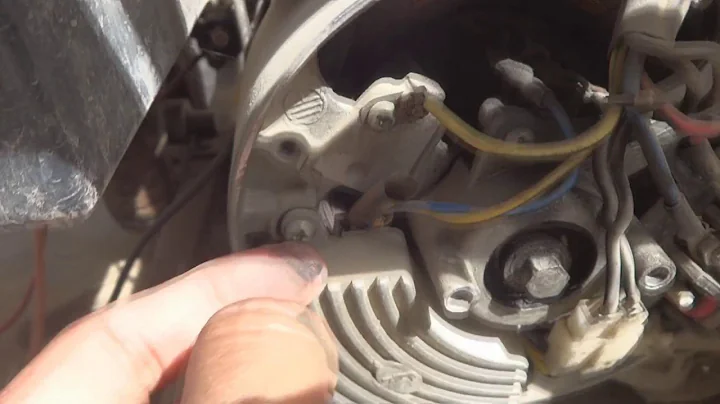The Reality of Owning Horses at Home: Challenges and Joys
Table of Contents
- Introduction
- The Dedication and Responsibility of Having Horses at Home
- The Need for Companion Animals
- Understanding Your Horse's Dietary Needs and Costs
- Managing and Maintaining Your Land for Horses
- Dealing with Fencing and Land Issues
- The Importance of Poop Management
- The Challenges of Land Development and Upgrades
- Budgeting: The Financial Realities of Owning Horses at Home
- The Benefits of Having Horses at Home
🏇 The Reality of Having Your Horses at Home: A Peek Into the Equestrian Dream
Introduction
For equestrians, owning their own land has always been a dream come true. The idea of having horses right next to their homes, where they can care for and see them every day, is incredibly appealing. However, the reality of owning horses at home goes beyond just the dream. In this article, we will explore the challenges and responsibilities involved in having horses at home, providing a glimpse into the everyday life of an equestrian homeowner.
1. The Dedication and Responsibility of Having Horses at Home
Owning horses at home demands an immense amount of dedication and responsibility. Unlike boarding stables where assistance is readily available, as a homeowner, you are solely responsible for the care of your horses. This means that you need to rely on your own intuition and knowledge to make important decisions about their well-being. Whether it's remembering to feed them before leaving for work or figuring out their dietary needs, the constant reminder of your responsibility never fades.
- Pros: Being solely responsible allows for a deeper bond and connection with your horses.
- Cons: The amount of dedication and self-reliance required can be overwhelming for some.
2. The Need for Companion Animals
When you have your own land, it's important to consider getting a companion animal for your horse. Horses are social creatures and having a companion helps prevent buddy sour or herd bound behavior. Many equestrians opt to get a second horse, ensuring that their horses have company even when they are separated. However, it's crucial to understand that caring for a second animal adds another layer of responsibility and financial commitment.
- Pros: A companion animal provides social interaction and emotional support for your horse.
- Cons: The additional care and expenses associated with a second animal need to be considered.
3. Understanding Your Horse's Dietary Needs and Costs
Managing your horse's diet is another critical aspect of owning horses at home. From understanding their specific dietary needs to the costs involved, it's essential to be well-informed. Having ample grazing land can be beneficial, as it reduces the reliance on hay. However, it's equally important to monitor the sugar intake of your horses, as excessive sugar can be harmful. Deciding when to start feeding hay and how to store it are decisions that need to be made with care.
- Pros: Having grazing land can reduce the expenses of purchasing hay.
- Cons: Monitoring your horse's diet requires knowledge and attention to detail.
4. Managing and Maintaining Your Land for Horses
Caring for your land is just as important as caring for your horses. Ensuring sturdy fencing, dealing with weed control, and maintaining a safe environment are all part of land management. Fencing may require repairs or replacement over time, and dealing with persistent weeds, such as foxtail and pokeberry, is vital for the safety of your horses. Balancing the needs of your horses with the demands of land management can be a challenge.
- Pros: Proper land management ensures a safe and healthy environment for your horses.
- Cons: Land maintenance can be time-consuming and labor-intensive.
5. Dealing with Fencing and Land Issues
One of the major challenges of owning horses at home is dealing with fencing and land issues. Over time, fencing may fall down or require repairs due to wear and tear. Weeds can also invade your horse's field, posing a threat to their wellbeing. Managing fencing and addressing land issues become tasks that require attention and effort. Temporary solutions may be necessary until permanent fixes can be implemented.
- Pros: Addressing fencing and land issues ensures the safety and security of your horses.
- Cons: Repairing and maintaining fencing and land can be costly and time-consuming.
6. The Importance of Poop Management
For equestrian homeowners, poop management is a significant aspect of horse care. Deciding where the horse waste will go and implementing an effective poop management system is crucial. Whether it's creating a designated poop pile or composting, finding a proper waste disposal method is essential for maintaining a clean and healthy environment.
- Pros: Proper poop management ensures a clean and hygienic living space for your horses.
- Cons: Establishing and maintaining an efficient poop management system can be challenging.
7. The Challenges of Land Development and Upgrades
One of the dreams of owning your own land is developing it to suit your equestrian needs. However, land development and upgrades can be a complex and costly process. Building a proper riding arena, putting in a new barn, or grading the land require careful planning and financial resources. Prioritizing projects and understanding that Rome was not built in a day is crucial for long-term success.
- Pros: Developing and upgrading your land enhances the equestrian experience.
- Cons: Land development and upgrades come with significant financial commitments.
8. Budgeting: The Financial Realities of Owning Horses at Home
While owning horses at home may seem like a cost-saving option compared to boarding, the financial realities can often be a surprise. The expenses of caring for horses at home, including feed, veterinary care, fencing repairs, and land maintenance, can quickly add up. It's important to budget carefully and ensure that you are prepared for the ongoing expenses of owning horses at home.
- Pros: Owning horses at home allows for greater control over the costs and care of your horses.
- Cons: The financial burden of owning horses at home should not be underestimated.
9. The Benefits of Having Horses at Home
Despite the challenges and responsibilities, having horses at home offers numerous benefits. The convenience of seeing your horses every day, the deeper bond you develop with them, and the ability to ride and care for them on your own terms are all invaluable advantages. Despite the hard work, equestrians often find that the rewards of having horses at home far outweigh the challenges.
Conclusion
Owning horses at home is a dream come true for many equestrians. However, the reality of this dream involves dedication, responsibility, and careful planning. Understanding the challenges and embracing the joys of having horses at home will ensure a rewarding experience. Whether it's managing land and fencing, caring for companion animals, or navigating the financial commitments, being an equestrian homeowner is a unique and fulfilling journey.
Highlights:
- Owning horses at home requires immense dedication and responsibility.
- Companion animals play a vital role in preventing buddy sour behavior.
- Understanding your horse's dietary needs and managing land for grazing are essential.
- Proper land management ensures a safe and healthy environment for your horses.
- The financial realities of owning horses at home should be carefully considered.
- Despite the challenges, having horses at home offers unparalleled rewards.
FAQs:
Q: Can I save money by owning horses at home instead of boarding them?
A: While owning horses at home can potentially save money on board, the overall expenses of caring for your horses at home can be equivalent or even greater.
Q: Do I need a companion animal for my horse if I own my own land?
A: It is highly recommended to have a companion animal for your horse to prevent buddy sour or herd bound behavior.
Q: What are the challenges of managing land for horses at home?
A: Challenges include fencing repairs, weed control, and maintaining a safe and clean environment for your horses.
Q: Can I ride as often as I want when I have horses at home?
A: The demands of caring for your land and managing horse-related tasks may limit the time available for riding, but with discipline and planning, it is possible to find a balance.
Q: Is owning horses at home financially feasible?
A: While the costs of owning horses at home can be significant, it ultimately depends on your budgeting and financial planning.
Resources:







